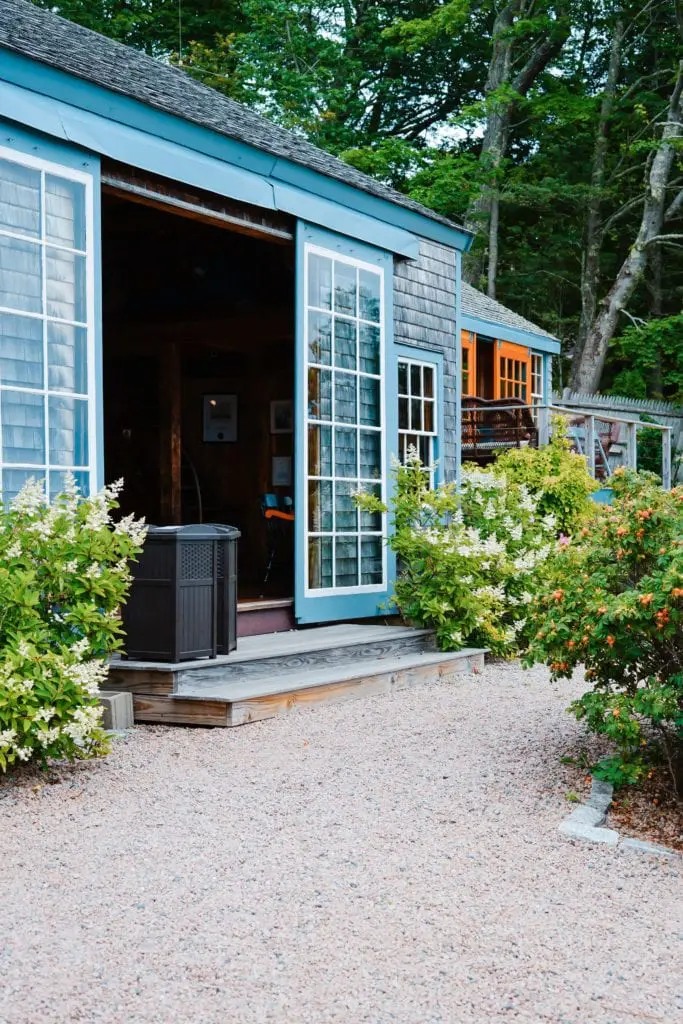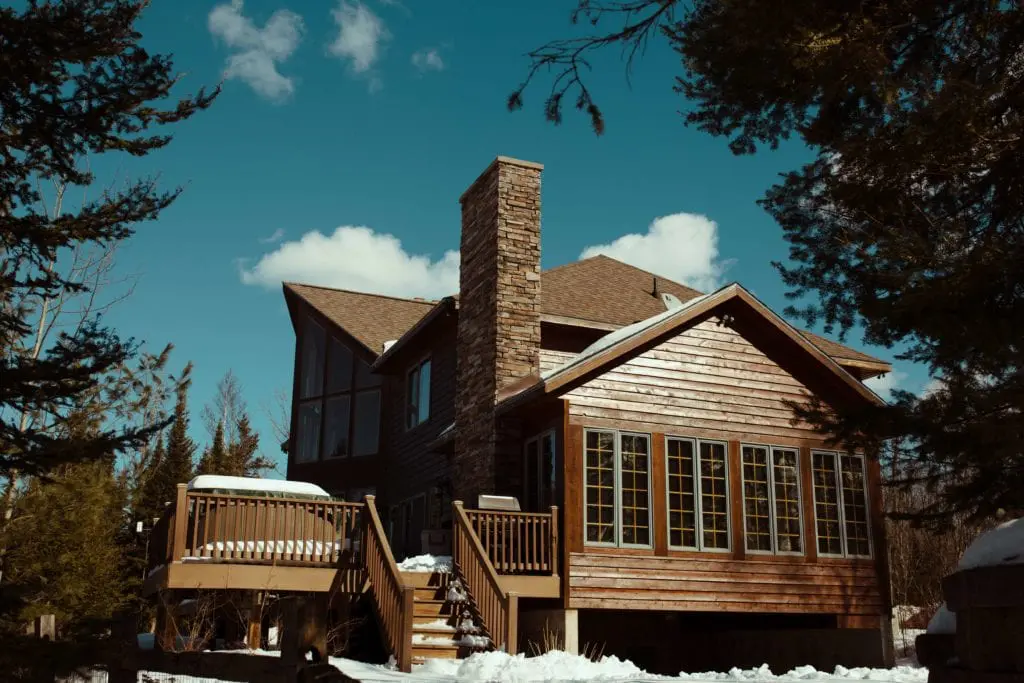
Buying a new construction home can reduce the hassle and expense of home repairs, but all homes need maintenance to keep them in good shape, help them hold or improve their market value over time, and to avoid major repairs.
Before we really dive in, an important distinction: repairs and maintenance are often spoken of together as if they were a package deal, but in fact, the two aren’t the same. Repairs fix broken things. Maintenance prevents breakdowns before they happen.
This chart shows some of the common repairs and maintenance needs for various components of a typical home.
Examples of Home Maintenance and Repairs
| Part of the Home | Maintenance | Repair |
| Rain Gutters | Remove dirt and debris | Mend or replace |
| Landscaping | Remove weeds, prune shrubs/trees, sweep walkways, adjust sprinkler heads | Replace dead plants and trees, repair broken walkways and sprinkler heads |
| Pests | Exterminate termites | Replace and paint wood damaged by termites |
| HVAC System | Replace filters | Replace furnace |
| Refrigerator | Vacuum coils, replace water filter | Replace bad compressor |
| Hot Water Tank | Flush tank to remove sediment | Replace leaking tank |
| Water Softening System | Add salt pellets | Replace tank or entire system |
| Garage Door | Lubricate Springs | Replace broken springs |
| Basement Flood Control System | Test sump pump | Replace anything damaged by flooding |
| Doors | Replace weather stripping, apply fresh paint | Replace damaged door |
A fourth column could be added for improvements, a completely different category from repairs and maintenance. Instead of being problem-focused, improvements involve remodeling or upgrading a home’s structure, components, or appliances.
Replacing your refrigerator because your current one doesn’t keep your food cold and the cost to fix it doesn’t make economic sense might be categorized as a repair. On the other hand, buying a new refrigerator because you want a different shelf and drawer configuration or a trendier color would be an improvement.
Budgeting for improvements, repairs, and maintenance can be tricky. “Extensive home repair projects can be costly, and it’s important that homeowners don’t spend their entire maintenance budget on elective or cosmetic upgrades,” says Porch, an online marketplace for homeowners to find repair and improvement contractors.
Warranties
New homes generally don’t require repairs, and when repairs are necessary, they may be covered by the builder’s warranty. A claim might be inconvenient, but it won’t involve any out-of-pocket expense for the homeowner.
Older homes call for more repairs, translating into higher costs. However, repairs to an older home might be covered by a home warranty plan. Many sellers (or their realty agents) purchase these plans at closing so they won’t be bothered (or sued) by the buyer when something breaks.
Unlike builder’s warranties, home warranty plans usually involve service fees and building code upgrade charges. Another difference is that builder’s warranties are long-term contracts while home warranty plans have a one-year term that can be renewed for an annual fee.
It’s important to keep in mind that neither a builder’s warranty nor a home warranty plan covers maintenance. Whether a home is brand new or has existed for a while, maintenance expenses are the homeowner’s responsibility.
What Affects the Maintenance Cost of an Old House?
A home’s age is only one factor in its maintenance needs. If you are shopping for an old house, ask about how well the home was built, and how sophisticated (and prone to breakage) the home’s components are. Whether the homes have been remodeled will also affect maintenance costs.
Think about the home’s size and architectural style. If a home you’re interested in has a few years under its belt, ask about how well it has been maintained in the past.
Climate also effects maintenance costs. For example, “In the spring, you might want to consider inspecting the basement for water damage before the rainy season fully kicks in,” says Porch. “In the summer, you should consider checking and replacing all of the air conditioning filters to avoid unnecessary outages during the warmer months.”

New Home Maintenance
All home buyers should budget for maintenance costs, even if your home is newly built.
When you buy a new construction home, you can ask the builder about maintenance before or after closing. The builder should be able to tell you what the home’s maintenance needs are. Some chores should be performed monthly or annually, while others might need to be done often or only as needed.
Newly built homes typically come with brand new appliances, which may be covered by warranties, but will also require maintenance. Read the operating manual for each appliance and make notes about maintenance chores and how often they should be performed.
Bottom Line: Maintenance Matters
If home maintenance chores seem overwhelming to you, you’re not alone. While some homeowners stay on top of their home’s maintenance needs, others build up lists of chores that may get done soon, someday, or never.
Removing dirt and debris from rain gutters may not sound like a fun Saturday activity, but choosing to defer maintenance has consequences. Postponing these tasks can shorten the useful life of your home’s components, lower your home’s resale value, and prove more costly in the long run as neglected maintenance results in expensive repairs.
The good news is you can plan for maintenance, and you don’t have to do all of the work yourself. You can hire professionals to give you and your home a helping hand.

Marcie Geffner is an award-winning freelance reporter, writer and editor in Ventura, California. In the last decade, she has penned more than 1,000 published stories about residential and commercial real estate, banking, credit cards, computer security, health insurance and small business, among other subjects. Editors describe her as “detail-driven,” “conscientious,” “smart” and “incredibly versatile.” Her award-winning reporting has been lauded as “rock solid,” “spot-on relevant,” “informative,” “engaging,” “interesting” and “nuanced.” Her stories have been cited in seven published nonfiction books and two U.S. Congressional hearings.
Prior to her freelance career, Geffner was senior editor of California Real Estate magazine. Later, she became managing editor of Inman.com, an independent real estate news website. She also has prior employment experience in technical writing, corporate communications and employee communications. She received a bachelor’s degree in English with high honors from UCLA and master’s degree in business administration (MBA) from Pepperdine University in Malibu, California. She enjoys reading, home improvement projects and watching seagulls at the beach.
 10 of the Best Housewarming Gift Ideas for First-Time Homeowners
10 of the Best Housewarming Gift Ideas for First-Time Homeowners